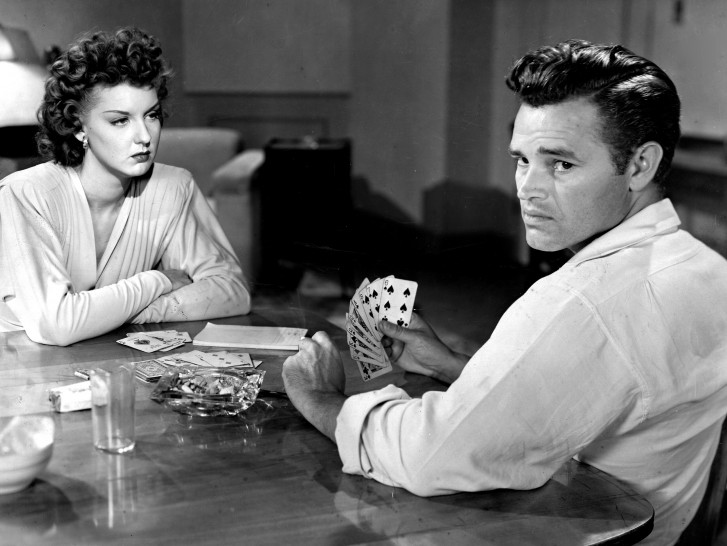
Detour
Five Came Back
Al Roberts, played somberly by Tom Neal, somewhere at the start of the film utters the phrase: “Fate sticks out a foot to trip you.” Roberts’ fate will be meeting, in labyrinthine ways, Vera, wonderfully portrayed by Ann Savage. Fate will become the constant and mounting fear that fears itself. Fate will become a nightmare of infinite proportions that agglutinates the very dark story that we are horribly being told. This film, one of the most disturbing pieces that I saw in my youth after pursuing it in every film club in Mexico, influenced by the recommendation of some of the iconic members of the French Nouvelle Vague, left a profound impression in me. The morbid pace, ominous and rather slow, the pace of nightmares, gave me reason to try as I could to envelop my movies with the notion of the nightmare, of the force of fate and the occurrence of omnipresent fear. – Arturo Ripstein
Restored in 2018 by the Academy Film Archive and The Film Foundation in collaboration with Cinémathèque Royale de Belgique, The Museum of Modern Art and Cinémathèque Française. Restoration funding provided by the George Lucas Family Foundation.
Among Nathanael West’s most significant screen credits is co-writer of John Farrow’s Five Came Back, a tense proto-disaster film about a South America-bound aircraft that crashes in the jungle and, as the suggestive title makes clear, can only accommodate fewer than half of its twelve passengers on its hobbled return flight. “But who?” the audience is asked to ponder while judging the motley gang of intellectuals, criminals and innocents fatefully united on the rickety craft and portrayed by a rich cast of character actors and rising stars, including Chester Morris as a hard-boiled pilot, C. Aubrey Smith, predictably, as a distinguished professor, and Lucille Ball in a revealing role as a tenderhearted “fallen woman.” While co-writer Dalton Trumbo’s Leftist leanings are clearly expressed in the self-righteous figure of the noble anarchist, West’s lurid humanism is rendered vivid in the sweaty, ribald intensity of undesired human intimacy and the ominous tom-toms of the unseen but ever-approaching cannibals that recall the bloodthirsty throng exploding in violent rage at the apocalyptic end of The Day of the Locust.










































